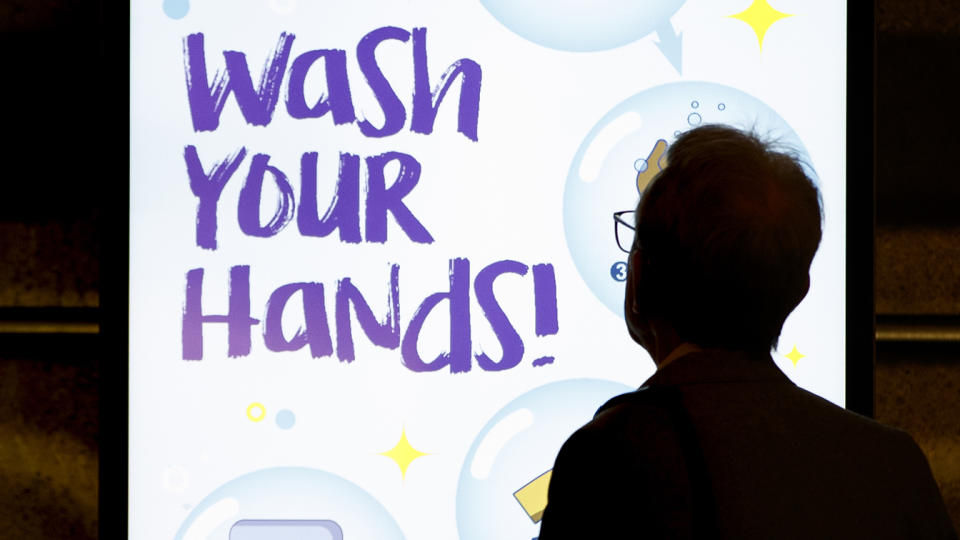CDC: White men still aren't washing their hands
WASHINGTON — Americans are washing their hands much more than they did before the coronavirus pandemic, according to new research from the Centers for Disease Control and Prevention. The groups less likely to adhere to that guidance were white people, men and people between the ages of 18 and 24, making young white men the picture of handwashing recalcitrance.
White men, including President Trump, have also led the resistance to mask wearing.
Long before the airborne nature of the coronavirus was understood, public health authorities were urging Americans to wash their hands, with the CDC and other agencies offering detailed seminars on how to do so properly. Some believe that public health authorities should have focused more on mask wearing than handwashing, given that the coronavirus does not spread as easily on surfaces as initially thought.
Still, handwashing is considered an essential aspect of good hygiene, whether a pandemic is raging or not.
When the pandemic first arrived in the United States early in 2020, and advice on handwashing proliferated, it quickly became clear that many Americans were simply not washing their hands regularly. Those who were washing their hands were often not doing it properly.
Still, fewer than three-quarters of Americans are washing their hands after coughing or sneezing, or in situations where they handle food, the CDC reported. Nevertheless, more Americans are making the proper ablutions than did a year ago. It is an admittedly thin silver lining, considering that more than 210,000 have been killed by the coronavirus in the United States. Millions have lost jobs.

For the study, the CDC used data collected from Porter Novelli Public Services, first in October 2019, before the pandemic began, and then in June 2020, as the country was in the midst of outbreaks along much of the Sun Belt. About 3,600 people were surveyed the first time around; the second survey included about 4,000 people.
Researchers found, encouragingly, that there were “statistically significant increases in reported handwashing” during that six-month period. People were about twice as likely to wash hands after coughing or sneezing, as well as before eating either at restaurants or at home.
There were exceptions, however. “Men, young adults aged 18–24 years, and non-Hispanic White (White) adults were less likely to remember to wash hands in multiple situations,” the researchers concluded.
The notion that men — in particular, white men — resist public health measures has been a point of discussion for much of the year. But the new study suggests that the nexus of youth, whiteness and masculinity is challenging when it comes to public-health directives.
“In both 2019 (pre-pandemic) and 2020 (during the pandemic), higher percentages of older adults, women, Black persons, and Hispanic persons reported remembering to wash their hands in multiple situations than did young adults, men, and white adults,” the new study said. “Because older adults, Black persons, and Hispanic persons have been disproportionately affected by COVID-19, engagement in preventive behaviors by these persons is particularly important.”
The CDC called for new communications efforts “tailored to resonate with men, young adults, and White adults.”
_____
Read more from Yahoo News:

 Yahoo Movies
Yahoo Movies 


